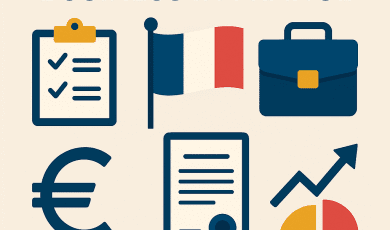
In today's globalized society, the role of language in spreading accurate and timely information is of utmost importance, especially in a country as culturally and linguistically rich as France. With hundreds of daily news events, from the bustling streets of Paris to the innovative tech hubs of Lyon, clear communication is vital. Whether reporting on government policies, cultural events, or economic shifts, the French news ecosystem depends on robust language interpretation to bridge important gaps. In this article, we'll explore how on site interpretation services, over the phone interpretation services, and remote interpretation services are essential in informing and uniting France and the wider world.
Interpreting News in a Multilingual Nation
France is a nation proud of its linguistic heritage — French is the official language, but there are also significant communities speaking Arabic, Portuguese, Italian, German, and regional dialects like Breton and Occitan. As France hosts major global events, its audience is not only local but international. According to Wikipedia's entry on Language Interpretation, interpreters are indispensable in bridging these linguistic divides and ensuring that critical information is accessible to everyone.
In recent months, France has seen a whirlwind of noteworthy news, from the nationwide pension reforms and labor strikes to international summits such as the Paris Climate Agreement follow-up sessions. These high-profile, often multilingual events underline the importance of effective interpretation services in the French media landscape and event coverage.
The Power of On-Site Interpretation Services
Consider the recent Women’s World Cup 2023 held in France, a multicultural and multilingual sporting event that captivated audiences worldwide. Journalists from dozens of countries converged to cover the matches, and on-site interpreters ensured that press conferences, interviews, and live broadcasts delivered the same powerful message to a global audience. Without on site interpretation services, many nuances of these high-stakes conversations might be lost or misinterpreted.
Additionally, on-site interpreters are critical in political settings. During the recent strikes over pension reforms in Paris and Marseille, union leaders and government officials held press briefings attended by international media. Here, interpreters enabled real-time multilingual exchanges, making sure that viewers in countries such as Germany, Spain, and Italy received the same updates as French natives.
Over-the-Phone Interpretation Services: Connecting Newsrooms and Sources
As media houses in France strive to provide up-to-the-minute reporting and expert interviews, not every conversation happens in person. In regions such as Normandy and Corsica, where covering hyper-local news is necessary, journalists often rely on over the phone interpretation services. These services make it possible for reporters to communicate with witnesses, government appointed spokespersons, and experts regardless of their location or language.
Last month, French news outlets covered the spike in tourism in Nice and Marseille following the easing of travel restrictions. Reporters used over-the-phone interpreters to collect statements in Spanish, Italian, and Russian, ensuring the coverage was inclusive and accurate. For media professionals, this flexible interpretation solution means stories get told without language becoming a barrier.
Embracing Remote Interpretation Services in a Digital Era
The impact of the COVID-19 pandemic fast-tracked the adoption of virtual solutions across industries—including journalism and event coverage in France. Remote interpretation services offer seamless, real-time language assistance via digital platforms, enabling reporters and organizations to adapt quickly to virtual press conferences, webinars, and live broadcasts.
For example, the 2024 Paris Olympics planning committees have extensively utilized remote interpreting to collaborate with their global partners and media. By leveraging this technology, news about infrastructure readiness, athlete selection, and security is efficiently communicated to an international press corps, all while maintaining pandemic-era safety protocols.
Remote interpretation services also democratize access to information. Small-town newspapers in Provence can now livestream city council meetings with interpreters present in virtual rooms, ensuring that citizens and expatriates alike have access to essential civic updates. Dive deeper into how interpreting differs from translation by reading more here: Interpretation and Interpreting Services: A Complete Guide.
How Interpretation Services Build Trust in French News
One of the key principles of journalism is accuracy. Miscommunication can dramatically alter the meaning of a story. With France's growing immigrant communities and vibrant international markets, interpretation services are crucial for trustworthy reporting. Whether covering the launch of a new tech center in Toulouse or the unveiling of climate action plans by French authorities, accurate interpretation means all news consumers receive the same story.
Furthermore, employment opportunities in interpretation are growing. The demand for skilled on site, telephonic, and remote interpreters has led to new work positions in France's media ecosystem. Many interpreters work freelance or contractually, supporting press agencies, event organizers, and local governments, allowing them greater flexibility while contributing to information access and civic participation.
Case Study: Major News Events and the Role of Interpreters
Take, for example, the recent European Union summit hosted in Paris. Leaders from across Europe convened to discuss energy policy, security, and migration. The multilingual demands of such an event require the coordinated efforts of on site, over the phone, and remote interpreters. French, English, German, Italian, and Spanish speakers all interacted in meetings and press conferences—interpreters ensured seamless communication both on location and through remote feeds.
Similarly, during the Cannes Film Festival, remote interpretation is frequently used for media interviews with international film stars and directors, while on site interpreters enable jury discussions and live event hosting. These services make the festival's magic accessible to audiences, filmmakers, and industry professionals the world over.
When it comes to day-to-day news, French broadcasters like France 24 utilize all three interpretation modalities to deliver international news in multiple languages, increasing their viewership and the diversity of their contributors.
Conclusion: Bridging Worlds Through Interpretation
The landscape of news and information in France is constantly evolving. From grassroots activism to global sporting events, from Parisian policy debates to provincial community meetings, the need for effective and timely interpretation is greater than ever. On site interpretation services ensure face-to-face accuracy during high-stakes events, over the phone interpretation services connect newsmakers and journalists in real time across distances, and remote interpretation services empower virtual pressrooms and global collaborations.
As France continues to play a leading role in European and global affairs, embracing robust and reliable language interpretation will keep citizens informed, promote transparency, and foster intercultural understanding. The future of French news depends on it—a future where no story is lost in translation, and every word counts.








